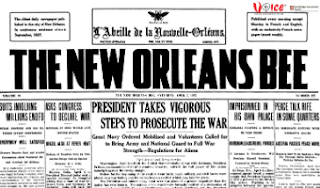Maximising Vocabulary Usage
There's
nothing worse than WANTING to use a particular English word...
and KNOWING that you know the word; you've studied the word... but you just
can't think of it at the moment. It's really frustrating!
Why does
this happen?
Why is
it so hard to bring words to mind when you need to use them?
The
answer is related to...
Active
vs. passive vocabulary
Your
passive vocabulary includes words that you can recognize and understand if you
see them, or if someone else says them to you.
Your
active vocabulary is the words that you can understand AND use yourself.
And to be
noted that this has nothing to do with "active voice" and
"passive voice" in grammar. It is a completely different concept.
Most
people have a bigger passive vocabulary than active vocabulary. This means you
can understand better than you can speak. You know a lot of English words, but
you feel like you don't have enough vocabulary to express yourself fully.
So how
can you turn your passive vocabulary (words you recognize) into active
vocabulary (words you can use)?
To
remember new words better, USE them right away!
Every
time you learn a new word – for example, from an English lesson or article –
write it down in your vocabulary notebook. Writing is more ACTIVE than just
reading a definition.
I
suggest writing down:
The word
The
definition in English (or translation)
1 example sentence from the article or
dictionary
1 example sentence that YOU create
Here's
an example:
Imagine
you just learned the word “generous.” Write in your vocabulary notebook:
WORD: generous (adjective)
DEFINITION: when a person gives time / money freely
EXAMPLE 1 (from the article):
“Thanks for paying for my dinner. You’re very generous.”
EXAMPLE 2 (my example):
“My brother is generous because he gives a lot of his money to charity.”
It’s
best if your example sentence is true or relevant to your life, because this
creates a personal connection with the new word. This helps you internalize the
vocabulary.
The next
day, read your vocabulary notebook again and try to add one more example
sentence using the new word.
The
strategy of "using new words right away" and creating your own
example sentences is something you can do at ANY level of English - from beginner
to advance.
If you
make this a habit, then you'll find yourself with a much larger "active
vocabulary," making it easier to speak and write in English without going
crazy trying to think of the word you want.



Comments
Post a Comment